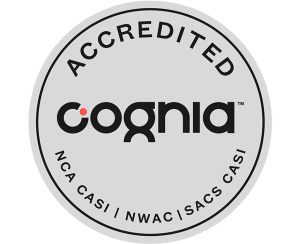Empowering Arizona Students: The Significance of ESAs in School Choice
January 12, 2024
In recent years, Arizona has emerged as a trailblazer in the realm of education, championing policies that provide families with greater control over their children’s learning journey. One such initiative that has gained widespread attention is the implementation of Education Savings Accounts (ESAs). This blog will delve into the importance of ESAs in Arizona and explore the transformative impact of school choice on students, parents, and the education landscape.
Understanding Education Savings Accounts (ESAs)
Education Savings Accounts, or ESAs, represent a paradigm shift in education policy. In Arizona, ESAs empower parents by allocating a portion of state education funding to a private account, which they can use to personalize their child’s education. This funding can cover a range of educational expenses, including private school tuition, online courses, tutoring services, textbooks, and even college savings.
The Importance of ESAs in Arizona
Customized Learning Experience:
- ESAs offer parents the flexibility to tailor their child’s education to suit individual learning styles, interests, and needs. This personalized approach fosters a more engaging and effective learning experience, ensuring that each student can reach their full potential.
Access to Diverse Educational Options:
- With ESAs, families are not limited to traditional public schools. They can explore various educational options, such as private schools, charter schools, online courses, and specialized programs. This diversity empowers parents to choose an environment that aligns with their child’s unique requirements.
Empowering Low-Income Families:
- ESAs play a crucial role in breaking down financial barriers to quality education. Low-income families, who may have limited access to alternative education options, can utilize ESAs to provide their children with a more enriching educational experience that may have otherwise been out of reach.
Encouraging Innovation and Competition:
- The introduction of ESAs encourages healthy competition among educational institutions. Schools are incentivized to innovate, improve their offerings, and cater to the specific needs of students to attract families choosing alternative education options.
What Difference Does School Choice Make for Arizona Students?
The implementation of school choice through initiatives like ESAs brings about several positive changes in the education landscape:
Improved Academic Performance:
- Studies have shown that students who have access to school choice options, such as ESAs, often exhibit improved academic performance. The ability to select an educational setting that resonates with a student’s learning style contributes to higher achievement levels.
Increased Parental Satisfaction:
- School choice empowers parents to actively participate in their child’s education, fostering a sense of ownership and satisfaction. When parents have the freedom to choose the best educational fit for their child, they are more likely to be engaged and supportive.
Innovation and Adaptability:
- The introduction of school choice encourages schools to innovate and adapt to the evolving needs of students. This dynamism within the education sector creates an environment where schools are motivated to continuously improve and offer cutting-edge educational experiences.
Education Savings Accounts stand as a cornerstone of Arizona’s commitment to providing families with the tools to shape their children’s educational journey. By promoting school choice, Arizona is fostering a more dynamic, inclusive, and student-centric education system. The positive impact of ESAs extends beyond individual families, contributing to a more vibrant and innovative educational landscape that benefits the entire community. As the nation watches Arizona’s pioneering initiatives, it becomes clear that ESAs are not just a policy but a catalyst for positive change in education.





